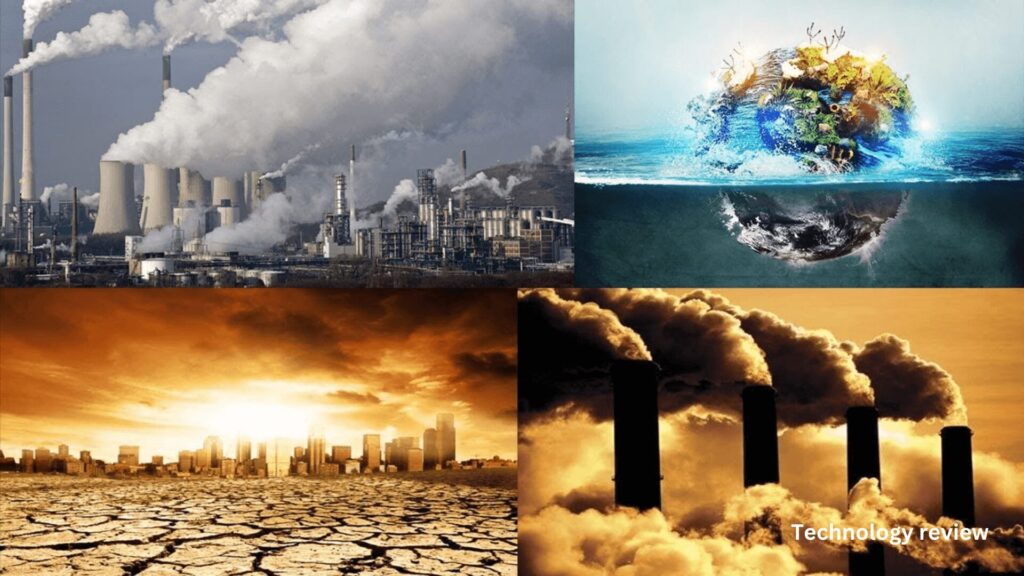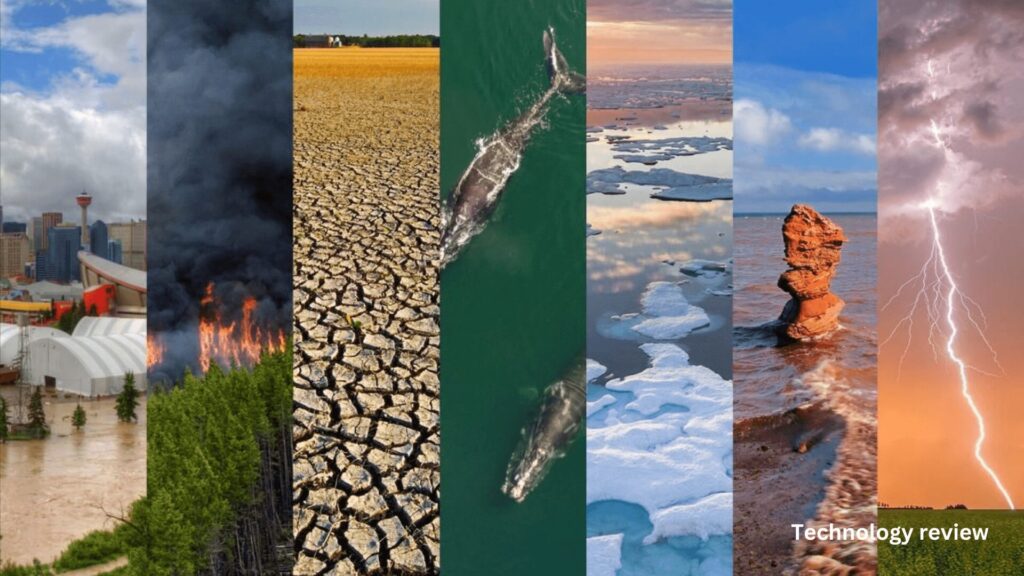What are the 10 Major Causes of Global Warming?
As you contemplate the future of our planet, understanding the root causes of global warming is essential. This pressing environmental issue affects every living being on Earth, yet its origins are complex and multifaceted. In this article, you will explore the ten major contributors to global warming, gaining valuable insights into the forces driving climate change. By examining these key factors, you’ll be better equipped to comprehend the challenges we face and the actions needed to mitigate their effects. Join us as we delve into the primary culprits behind rising global temperatures and their far-reaching consequences for our world.
Top 10 Causes of Global Warming
Global warming is a complex issue with multiple contributing factors. Understanding the 10 causes of global warming is crucial for addressing this pressing environmental challenge. Let’s explore the primary culprits behind the rise in Earth’s temperature.
Greenhouse Gas Emissions
The burning of fossil fuels like coal, oil, and natural gas releases carbon dioxide and other greenhouse gases into the atmosphere. These gases trap heat, leading to the greenhouse effect and contributing significantly to global warming. Industrial processes, transportation, and electricity generation are major sources of these emissions.
Deforestation
Trees play a vital role in absorbing carbon dioxide from the atmosphere. However, large-scale deforestation for agriculture, urbanization, and logging reduces this natural carbon sink. As forests diminish, more CO2 remains in the atmosphere, exacerbating the warming effect.
Agricultural Practices
Modern agriculture contributes to global warming through various means. Livestock farming produces methane, a potent greenhouse gas, while the use of nitrogen- based fertilizers releases nitrous oxide. Additionally, intensive farming methods can degrade soil, reducing its capacity to store carbon.
Industrial Processes
Many industrial activities, such as cement production and chemical manufacturing, release greenhouse gases as byproducts. These emissions, combined with those from energy use in factories, significantly contribute to global warming.
By understanding these key causes, we can better address the challenge of global warming and work towards sustainable solutions. It’s important to note that while these are among the primary factors, there are other contributors to this complex issue as well.
Greenhouse Gasses and Their Sources
Greenhouse gases are at the heart of global warming, acting as invisible drivers of climate change. Understanding these gases and their origins is crucial in addressing one of the 10 causes of global warming.
Carbon Dioxide (CO2)
Carbon dioxide is the most notorious greenhouse gas, responsible for the lion’s share of global warming. Its primary sources include:
- Burning of fossil fuels (coal, oil, and natural gas)
- Deforestation and land-use changes
- Industrial processes, such as cement production
The concentration of CO2 in our atmosphere has increased by over 40% since pre- industrial times, largely due to human activities.
Methane (CH4)
Methane, though less abundant than CO2, is a potent greenhouse gas with a warming effect 25 times greater than carbon dioxide over a 100-year period. Major sources include:
- Agriculture, particularly rice cultivation and livestock farming
- Landfills and waste management
- Natural gas and petroleum systems
Nitrous Oxide (N2O)
Often overlooked, nitrous oxide is another significant contributor to global warming. Its sources are primarily:
- Agricultural practices, especially the use of synthetic fertilizers
- Industrial processes
- Combustion of fossil fuels and biomass
Understanding these greenhouse gases and their sources is crucial in developing strategies to mitigate global warming. By targeting these emissions, we can work towards reducing their impact on our planet’s climate.
Human Activities That Contribute to Global Warming
Human activities are the primary drivers of global warming, accelerating the natural greenhouse effect and causing unprecedented changes in our climate. Understanding these activities is crucial for addressing the 10 causes of global warming and developing effective solutions.
Burning of Fossil Fuels
The combustion of coal, oil, and natural gas for energy production is the single largest contributor to global warming. When burned, these fossil fuels release carbon dioxide and other greenhouse gases into the atmosphere, trapping heat and raising global temperatures. Power plants, vehicles, and industrial processes are major sources of these emissions.
Deforestation and Land Use Changes
Forests act as natural carbon sinks, absorbing CO2 from the atmosphere. However, widespread deforestation for agriculture, urban development, and logging reduces this crucial carbon storage capacity. Additionally, when trees are burned or decompose, they release stored carbon back into the atmosphere, further exacerbating global warming.
Industrial Processes
Many industrial activities, such as cement production and chemical manufacturing, release significant amounts of greenhouse gases. These processes often involve high-temperature reactions or the use of fossil fuels, contributing to the overall increase in atmospheric CO2 levels.
Agricultural Practices
Modern agriculture contributes to global warming through various means. Livestock farming produces methane, a potent greenhouse gas, while the use of nitrogen- based fertilizers releases nitrous oxide. Additionally, intensive farming practices can degrade soil, reducing its ability to store carbon.
By understanding these human activities and their impact on global warming, we can develop targeted strategies to mitigate their effects and work towards a more sustainable future. Addressing these factors is essential in our collective effort to combat climate change and preserve our planet for future generations.
Steps You Can Take to Reduce Your Carbon Footprint
As we’ve explored the 10 causes of global warming, it’s clear that human activities play a significant role. However, there are many actions we can take in our daily lives to help mitigate this global issue. By making conscious choices, we can collectively work towards reducing our carbon footprint and combating climate change.
Embrace Energy Efficiency
One of the most effective ways to reduce your impact is by improving energy efficiency at home and work. Replace traditional bulbs with LED lights, which use up to 75% less energy. Invest in energy-efficient appliances and ensure your home is well-insulated to minimize heating and cooling needs.
Rethink Transportation
Transportation is a major contributor to global warming. Consider carpooling, using public transit, or cycling for short trips. If possible, switch to an electric or hybrid vehicle. For long-distance travel, opt for trains over planes when feasible, as they generally have a lower carbon footprint.
Adopt Sustainable Eating Habits
Our food choices significantly impact the environment. Reduce meat consumption, especially beef, as livestock farming is a substantial source of greenhouse gases. Choose locally sourced, seasonal produce to minimize transportation emissions. Additionally, minimize food waste by planning meals and composting organic scraps.
Support Renewable Energy
Advocate for and invest in renewable energy sources. If possible, install solar panels on your property or switch to a green energy provider. Support policies that promote clean energy development and reduce reliance on fossil fuels.
By implementing these strategies, we can each play a part in addressing the 10 causes of global warming. Remember, small changes in our daily routines can collectively make a significant impact in the fight against climate change.
Conclusion
As you’ve seen, the causes of global warming are complex and interconnected. From greenhouse gas emissions to deforestation, human activities play a significant role in accelerating climate change. By understanding these key factors, you’re better equipped to make informed decisions and take meaningful action. Remember, even small changes in your daily habits can contribute to the larger effort of mitigating global warming. As individuals and societies, we must work together to address these causes and implement sustainable solutions. The future of our planet depends on the choices we make today. Let’s commit to being part of the solution and creating a more sustainable world for generations to come.



